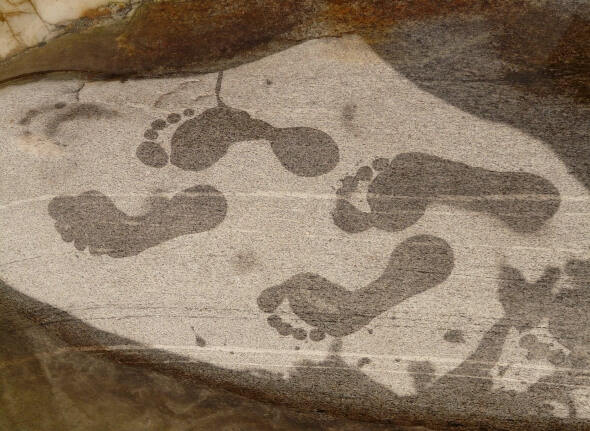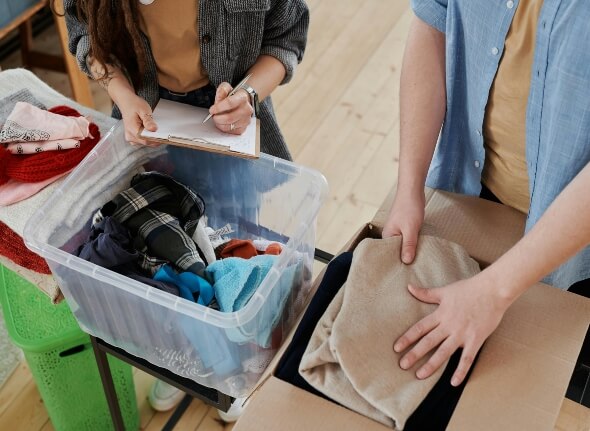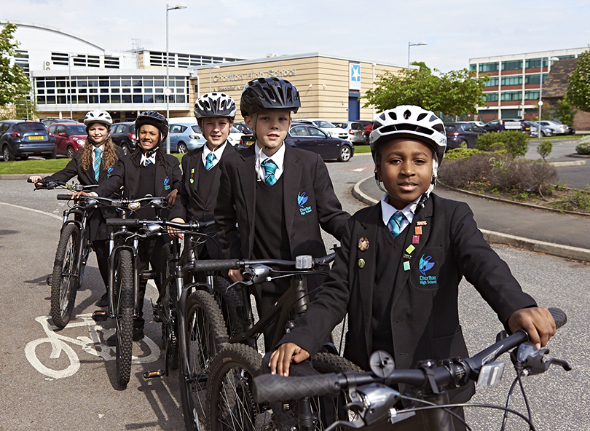How can I reduce my carbon footprint?
Read this article to understand what a carbon footprint is, how it affects the planet, and what you can do to make a difference.


What is a carbon footprint?
A lot of our daily lives involves us making choices that can affect how many greenhouse gases are emitted into the atmosphere and it might not always be obvious! The choices of food we eat, the clothes we wear and how we choose to travel to places can all have an effect on our global consumption.
A carbon footprint is a phrase used to quantify the impact of activity a person has on climate change. The more choices a person makes which adds to the overall consumption of the globe, the bigger their footprint.
For example, when you buy a new pair of jeans, have you ever thought about the process involved before you make that purchase? See below the life cycle of a pair of jeans and understand how this affects climate change.

Production
Cotton is the main raw material of denim which needs to be grown, farmed and cultivated. This cotton then needs to be turned into the fabric, and then the fabric into the garment. Thousands of litres of water are used to make one pair of jeans.
Transportation
Once the jeans have been made, they then need to be shipped to where the items are sold. Jeans are predominantly made in Asia, and so they travel thousands of miles, usually in big container ships, to reach the UK.
Consumer use
Once you have purchased your jeans, you might be washing them at high temperatures frequently which can increase environmental impact.
End of life
Most jeans end up in landfill, where they will decompose and release methane, a potent greenhouse gas.
So, in this example what can YOU do to help not have such a negative impact on the environment?
- Firstly ask yourself, do you need new jeans or is this purchase unnecessary?
- If you do need new jeans, could you purchase second hand instead of brand new?
- If you decide you want a brand new pair of jeans, research brands that are climate conscious and are actively doing things to help diminish their consumption. Check out this page which lists some of these brands to keep an eye out for.
- Once you have your jeans, only wash when necessary, the rule of thumb is to wash them around once every 10 wears, unless they are visibly dirty, have an odour or after activities that cause you to sweat.
- If you no longer want your jeans but they are in good condition, try reselling on second hand sites or donating to a charity. If the jeans are no longer wearable, firstly why not try making something else out of them, such as a pair of shorts, a bag, quilts etc… if not take a look at brands that recycle jeans and find the nearest drop off point.
What things can you do in your day to day life to help make your carbon footprint smaller?
By making small changes in your life, and being more aware of your carbon footprint, you can make a real difference. See below some ideas of how to reduce your carbon footprint.

Food
- Be aware of what food are in season, if you are buying strawberries in winter, they haven’t been grown locally, and so the carbon footprint increases just from transporting the strawberries where they were grown in the World.
- Limit meat consumption, especially beef.
- If buying fish, make sure to look out for “sustainable fishing” logo on the packaging
- Be aware of unnecessary plastic packaging and opt for plastic free, bring your own reusable bags to pack!
- Plan your food carefully and only purchase what you need to avoid unnecessary waste.
Clothing
- Take good care of your clothes and repair where you can.
- Try buying second hand, renting or swapping your clothes.
- Look out for brands that are trying to make an active difference. E.g made from recycled materials or with an eco-label.
Transport
- Walk or take public transport where you can. Ditch the car!
Energy and waste
- Take short showers
- Turn off water in between brushing teeth, washing the dishes etc…
- Unplug electronic devices and don’t leave things on charge once they have reached full battery.
- Make sure you are recycling as much as you can be.
Related
Why Littering is Everyone’s Problem
[rt_reading_time...

Save carbon through walking, cycling and Bee Network
[rt_reading_time...
